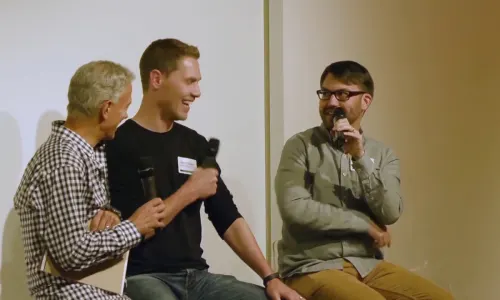See all Y Combinator transcripts on Youtube

Keith Schacht and Doug Peltz on What Traction Feels Like - at YC Edtech Night
28 minutes 3 seconds
🇬🇧 English
Summaries Topics Transcript Chapters Titles Socials Twitter Blog Post Newsletter Quotes Quizzes Ask ChatGPT

Omnivision Solutions Ltd
- Getting Started
- Create Transcript
- Pricing
- FAQs
- Recent Transcriptions
- Roadmap